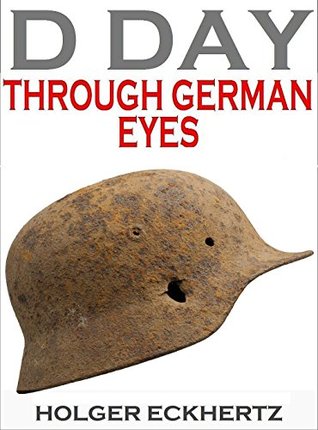More on this book
Community
Kindle Notes & Highlights
Read between
July 30 - July 31, 2017
I understood much later that this was the day of ‘the largest seaborne invasion in history’ or ‘the biggest military operation ever mounted’ – but that is actually all I saw of the landing itself. Just that glimpse between the dunes, with a lot of boats on the water. I think this often happens to basic foot soldiers in a war: they are in historic battles or campaigns, but their view is limited to the fields around them.
After the initial burst of energy and determination that I felt when the attack started, I began to feel pity for these troops, because they kept arriving in landing craft. The craft would deposit them in the shallows, and they would walk towards us through the water in the same way as the first set of troops. We fired at them in the same way, causing the same deaths and injuries. My loader was moved by this, and he shook his head, saying that the Americans should not sacrifice their men in this way.
When I read today about the French Resistance, I am impressed at their tenacity, but if the readers of such books could see the trading that went on between us and the local French, they might form a different view of life in France at that time. Well, but this is perhaps a case of history being written by victors.
We saw the British as an outdated Imperial force, organised by freemasons, who sought to turn the clock back one hundred years to the days when their word was the law around the world. Why should they be entitled to install their freemason puppet, De Gaulle, in France, to rule as a proxy? The Vichy government had three consistent points in its propaganda regarding the threats to the French people: these were De Gaulle, freemasonry and communism.
As for the American state, we perceived that as controlled by the forces of international finance and banking, who wished to abolish national governments and have the world run by banks and corporations.
There was a definite sense that Europe was united under the Reich, and an attack on France would be an attack on the whole structure.
I still felt numb, but at the same time, let us remind ourselves, we the Germans were not attacking England! We were not invading America. It was the Allies attacking France, and we were there to defend the country against their assault.
That was a shock to me: that my actions could cause other men to take revenge on me even if I offered to surrender.
I noticed this trait in the English: they changed rapidly from being friendly or so-called ‘gentlemen’ to being very ruthless, even brutal, and they could turn these different sides of their character on and off very quickly.
One thing in particular struck many of us as amazing: all along the beach, there were no horses! This was a surprise for you? Yes, we found it astonishing. This huge army had brought with it not one single horse or pack-mule! All their transport was mechanised. It may sound bizarre today, but this impressed us greatly, showing that the Allies had no need of horses anymore, as they had such huge oil resources and production capacity. Because, of course, the German armies used horses for transport on quite a large scale right up until the end of the war, due to limited fuel and constraints
...more


